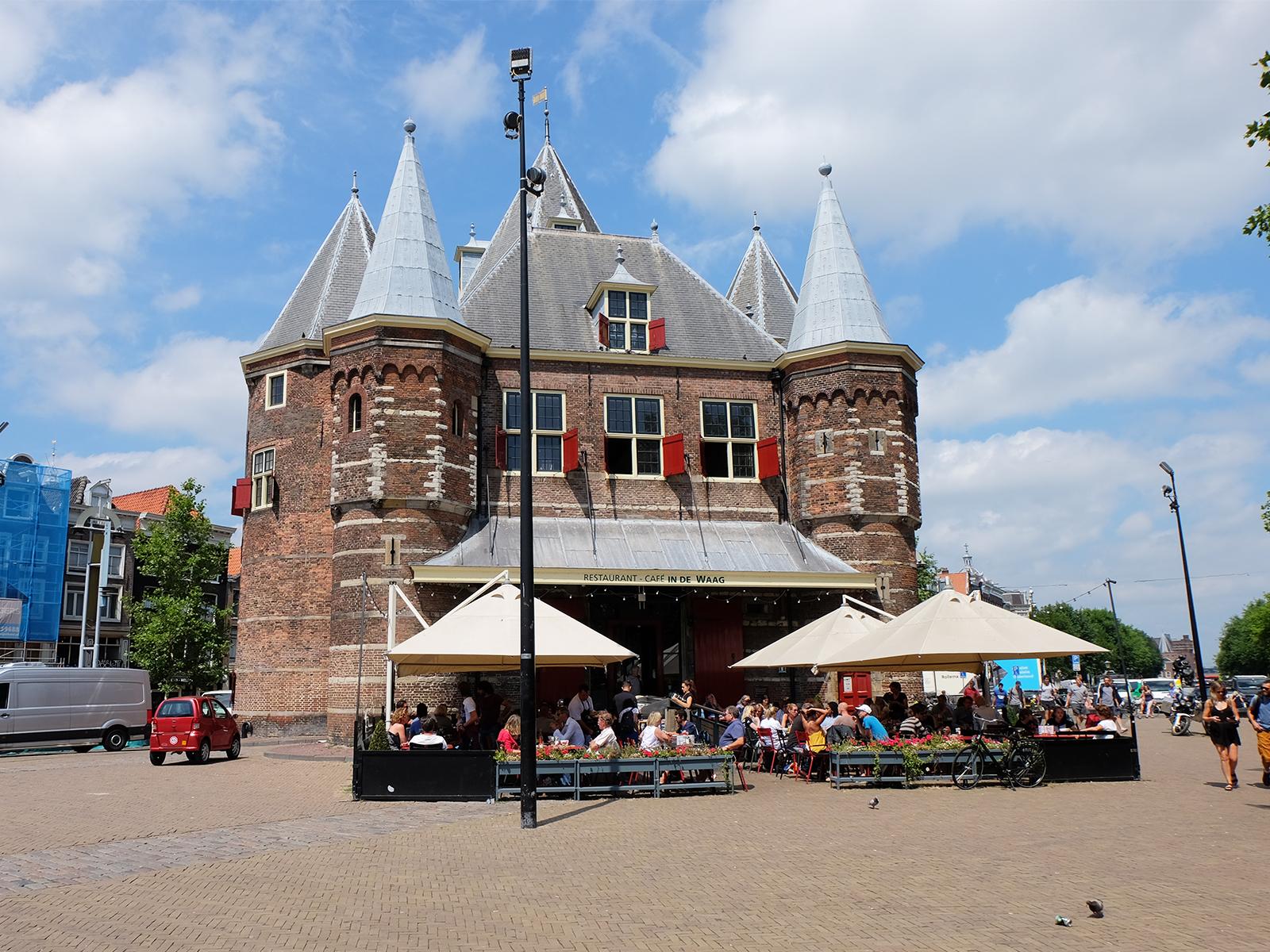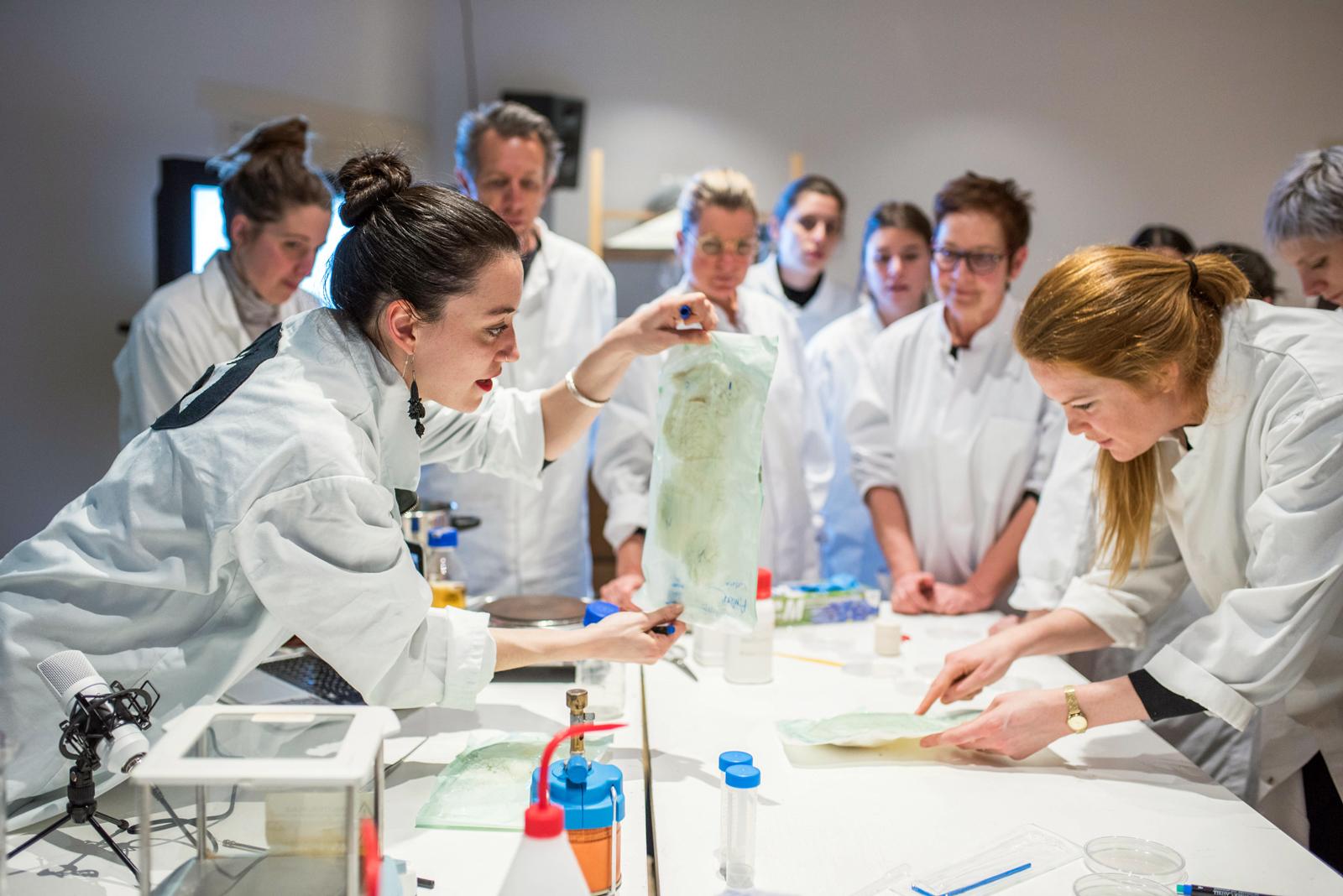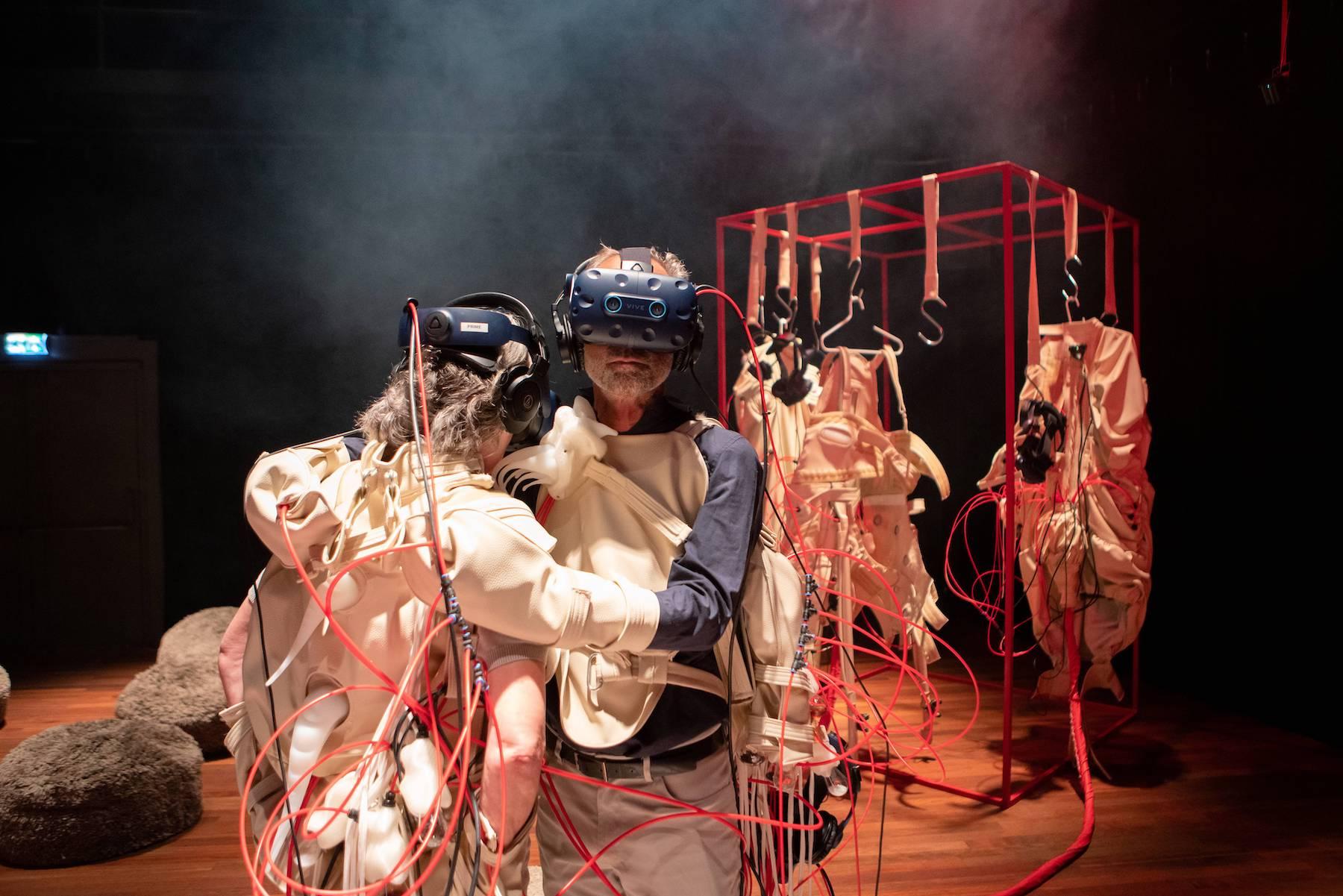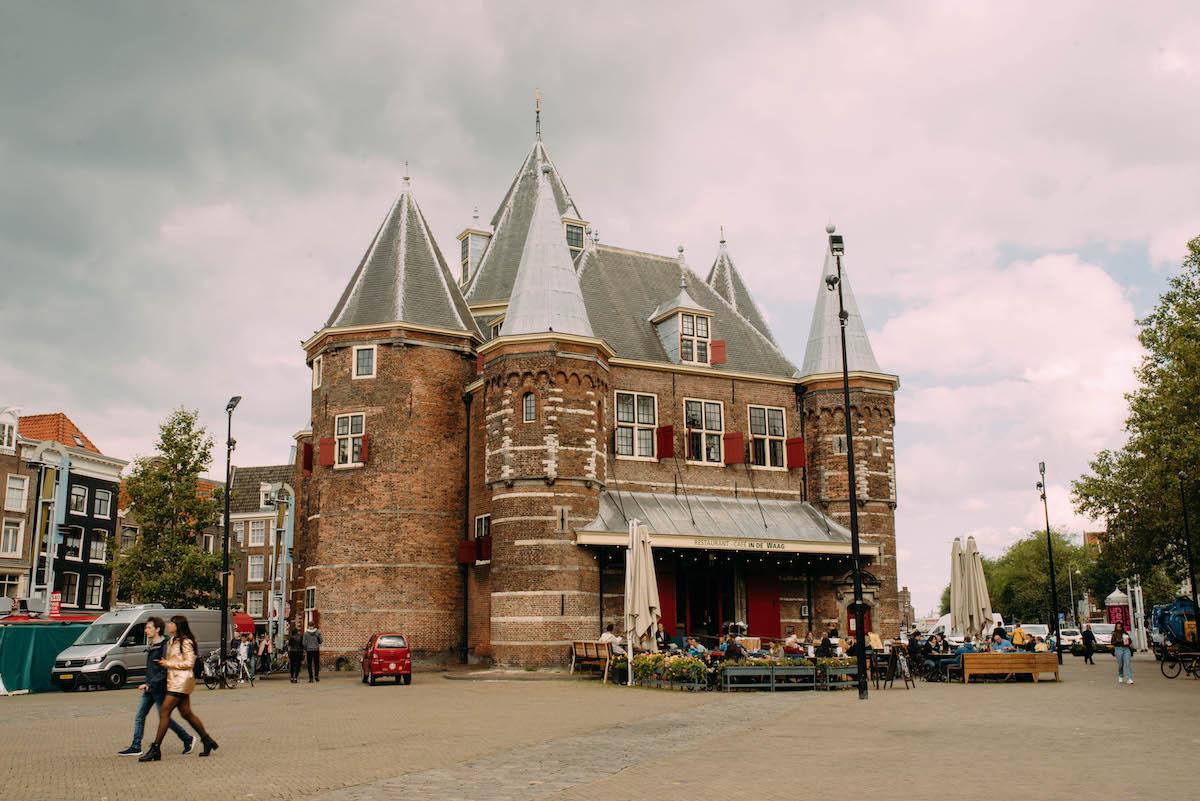Waag, located in the centre of Amsterdam, operates for more than twenty years at the intersection of science, technology and the arts. Our work focuses on emergent technologies as instruments of social change, and is guided by the values of fairness, openness and inclusivity. Waag’s dedicated team of sixty thinkers and makers empowers people to become active citizens through technology.
Marleen Stikker, director of Waag, was the co-initiator in 1993 of the De Digitale Stad (The Digital City), the first virtual community in The Netherlands introducing free public access to the Internet. Marleen: "For many people, this was their first access to the Internet, not only for individuals, but also for organisations, newspapers, city councils". The Digital City still forms the DNA of Waag.
A common thread in the work of both Waag and Marleen Stikker are themes such as public access to the Internet, the feasibility of technology and breaking open closed systems: 'If you cannot open it, you don't own it.'
Fairphone, started at Waag, gives this principle a concrete form. Fairphone aims to make an fair smartphone with conflict-free minerals, with better working conditions for the workers. A telephone that can be repaired (and is therefore sustainable), based on open design principles.
The physical labs in the Waag (fablab, biolab and textile lab) can be used to experiment with digital fabrication, new materials and biotechnology. Do-it-yourself solutions are also sought in healthcare, where everyone can connect with a good idea. Or we look for alternatives for the current harmful way of dyeing textiles. Waag organises workshops CRISPR-Cas, where the possibilities and limits of genetic modification are investigated, both theoretically and in practice.
In the Amsterdam Smart Citizens Lab, Waag is the place where citizens organize themselves for several years now to experiment with technology and to map their surroundings. From measuring the most polluted streets in Amsterdam to mapping the cleanest bathing water in the city.
Through DECODE, Waag, in collaboration with Dyne and the City of Amsterdam, is involved in the development of solutions that bring data ownership back to the user. The users determine what they want to share online with whom, with data sovereignty as the ultimate goal.
In collaboration with the Public Library of Amsterdam and others, Waag has in recent years put the maker education on the map and made it widely accessible via Maakplaats 021 - maker spaces at libraries. Last month the fifth library with a maker space opened its doors in Amsterdam to give children in Amsterdam access to facilities such as 3-D printers, laser cutters and other digital technology.



